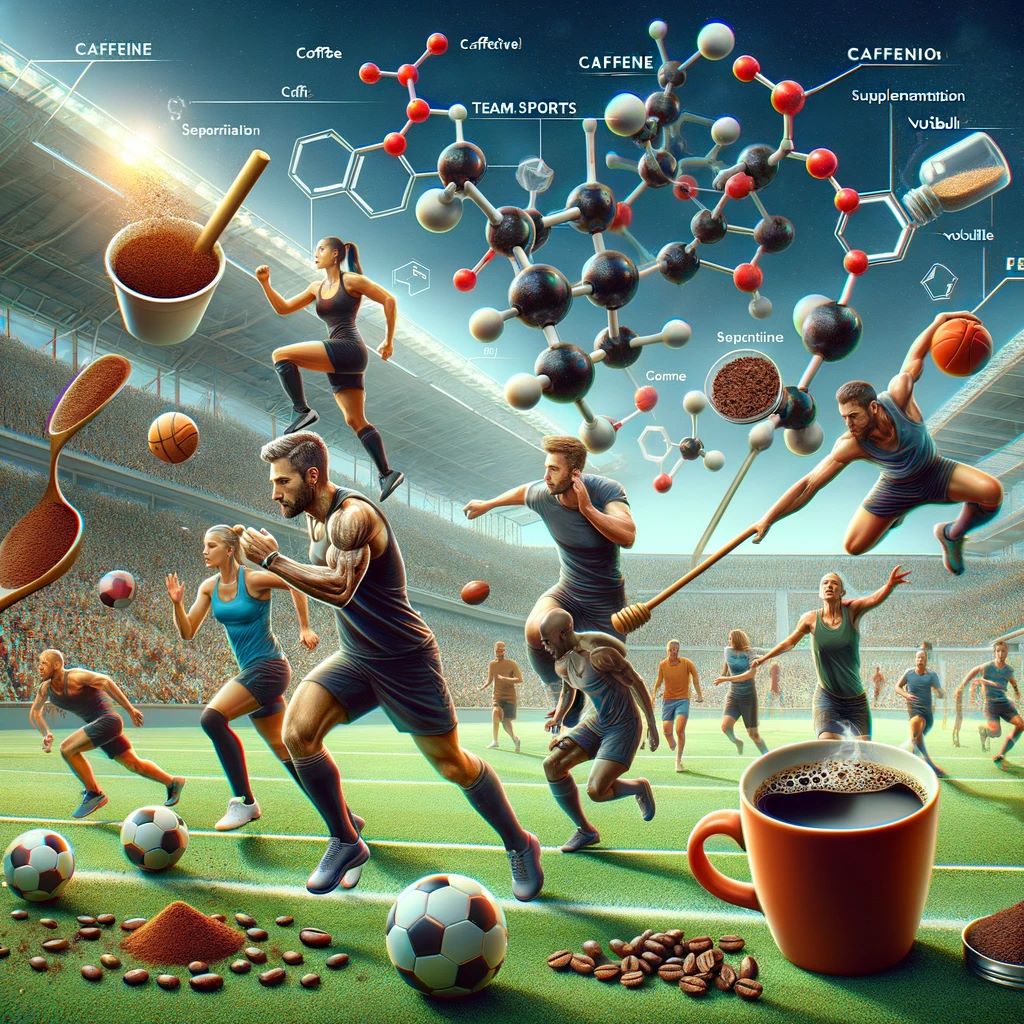An Overview of Caffeine's Impact on Team Ball Sport Performance: Dosing, Gender Differences, and Physiological Considerations
DOI:
https://doi.org/10.61838/kman.tjssm.1.1.7Abstract
Background: Caffeine is the most consumed psychoactive substance globally, second only to water in beverage consumption. Its impact on athletic performance, particularly in team sports, has been a subject of growing research interest. This review focuses on recent studies investigating caffeine's influence on various aspects of team ball sports performance.
Objectives: This mini-review aimed to (i) synthesize current research findings on caffeine supplementation in team sports, considering different doses, forms, and its effects across genders and (ii) to highlight key considerations for optimal caffeine use in these sports.
Methods: THIS mini-review examined recent studies on caffeine's effects in team ball sports, analyzing variables such as supplementation strategies, habitual consumption, gender, washout periods, individual responses, and supplement forms (capsules or powders). The focus is on studies that have used caffeine doses ranging from 3 to 6 mg·kg -1, administered 60 minutes before competition.
Results: Findings suggest beneficial effects of caffeine ingestion (3 to 6 mg·kg-1) in enhancing technical and physical aspects of team ball sports. However, results vary based on factors like the supplementation strategy, individual caffeine consumption habits, and gender. Most research has focused on single-dose effects, revealing a lack of comprehensive, gender-specific guidelines for caffeine's optimal use in team sports.
Conclusion: While caffeine supplementation shows promise in enhancing team sports performance, there is a need for more comprehensive research, especially regarding gender-specific effects and optimal consumption strategies. Current evidence points to the potential benefits of caffeine in morning competitions or training sessions but indicates possible detrimental effects in afternoon or evening settings. Further research is needed to develop robust guidelines for caffeine use in team sports, considering dosage, timing, form, and differential gender effects.

Downloads
Additional Files
Published
Issue
Section
License
Copyright (c) 2023 Houda Bougrine, Atef Salem, Achraf Ammar, Nizar Souissi (Author)

This work is licensed under a Creative Commons Attribution-NonCommercial 4.0 International License.






